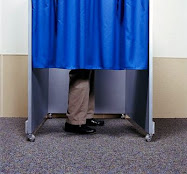In a speech May 20, Obama said that with a majority of pledged delegates, he is “within reach of the Democratic nomination for president of the United States of America.” Typically this election season, the candidates have given speeches in a state that just held a primary. But Obama chose to speak in Des Moines, Iowa, which some political experts said signified that he was turning his attention to the general election. Iowa not only was the state where Obama won the first nominating contest of the 2008 campaign, but also is a swing state in which candidates from both parties will want to campaign in this fall.
Talking to the many Iowa supporters who voted for him in the state’s January caucus, Obama said: “You came out on a cold winter's night in January, in numbers that this country has never seen, and you stood for change. … And because you did, a few more stood up, and then a few thousand stood up, and then a few million stood up.”
“And tonight … we have returned to Iowa with a majority of delegates elected by the American people.”
In Louisville, Kentucky, Clinton said she will continue to campaign for the nomination because neither candidate has enough delegates yet to guarantee the position.
“Neither Senator Obama nor I will have reached that magic number when the voting ends on June the 3rd,” Clinton said. Three Democratic nominating contests remain: Puerto Rico holds its primary June 1, followed by South Dakota and Montana June 3.
“This continues to be a tough fight, and I have fought it the only way I know how: with determination, by never giving up and never giving in. …
“And I'm going to keep standing up for the voters of Florida and Michigan. … Democrats in those two states cast 2.3 million votes, and they deserve to have those votes counted,” Clinton said.
In the fall of 2007, the Democratic National Committee (DNC) said it would not count Florida and Michigan’s pledged delegates because the states violated party rules by scheduling their primaries prior to February 5. The presidential candidates agreed not to campaign in those states, and Barack Obama and most other Democratic candidates removed their names from the Michigan ballot.
Clinton earned the most votes in both of those states’ primaries, and has argued that voters deserve to have their voices heard. Obama has maintained that it is unfair to count those delegates because candidates did not campaign in those states.
Both candidates visit Florida May 21. Clinton will work to encourage party leaders to count the state’s delegates, while Obama reaches out to Florida voters who might be offended that votes cast by their Democratic delegates currently would not be counted toward the nomination. Political experts say this outreach is important because, as Americans remember from the 2000 election, Florida is a key swing state.
giovedì 22 maggio 2008
What happen?
Illinois Senator Barack Obama earned a majority of pledged delegates May 20, but this still leaves him about 370 delegates shy of securing the Democratic nomination. As polls in recent days indicated, Obama won Oregon’s Democratic primary May 20. With 88 percent of the vote counted in the only U.S. state that conducts all voting by mail, Obama was leading by 16 percentage points. Oregon is a northwest state on the Pacific coast with one of the most liberal populations in the country.On the same day, Hillary Clinton defeated Obama by 35 percentage points in Kentucky, a southern state with a large, white, working-class population. Its demographics are similar to those of neighboring West Virginia, where Clinton won by 41 percent May 13.
In order to become the party’s nominee, a candidate needs to earn the votes of a majority of convention delegates. This includes pledged delegates and unpledged delegates, better known as “superdelegates.” To secure the nomination, a candidate must receive the votes of 2,026 delegates. U.S. media organizations and political parties each use their own formulas for determining just how many delegates a candidate has earned. Often the counts are estimates, because it can take days or even weeks for states’ parties to determine exactly how many delegates each candidate will receive. America.gov uses the delegate count calculated by the organization the Green Papers. As of the morning of May 21, the Green Papers said Obama has earned 1,655.5 of the 3,253 pledged delegates. Clinton has 1,498.5 pledged delegates. Many U.S. media and political organizations include in their delegate tallies the votes of superdelegates who have made their intentions known. Superdelegates are elected officials and party leaders who can vote for any candidate they choose. This means they can change their minds about whom they support, as a handful have done this election season. As of the morning of May 21, 304.5 of the 797 superdelegates said they intend to vote for Obama, while 277.5 superdelegates said they plan to vote for Clinton. Democrats Abroad and some U.S. territories award delegates in half-vote increments so that more people can participate in the national convention.



















